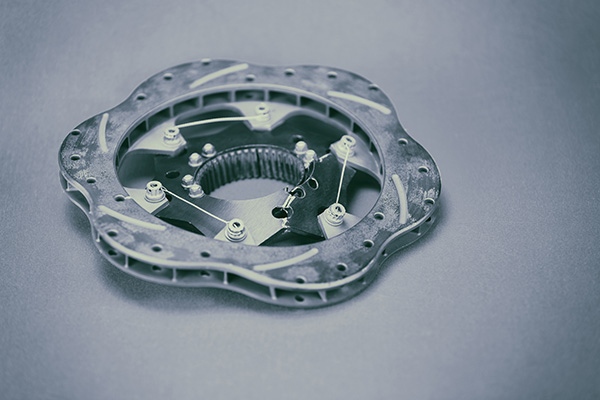
If your steering wheel shakes when you hit the brakes, it’s not something to ignore. That vibration is your car’s way of telling you there’s a problem—whether it’s worn brake components, uneven rotors, or suspension issues. Letting it go too long can lead to weaker braking performance, more expensive repairs, and even a safety hazard. So, what’s behind the shaking, and how do you fix it before it gets worse?
1. Warped Brake Rotors
One of the most common causes of steering wheel vibrations during braking is warped brake rotors. Rotors are the metal discs that your brake pads clamp onto to slow down your vehicle. Over time, excessive heat from braking can cause them to wear unevenly or develop high and low spots, leading to shaking when the brake pads make contact.
Signs of warped rotors:
- Vibrations occur only when braking, especially at higher speeds.
- The steering wheel shakes, and you may also feel pulsations in the brake pedal.
- Braking feels inconsistent or takes longer than normal.
Solution: If your rotors are warped, resurfacing or replacing them is the best way to restore smooth braking performance.
2. Worn or Uneven Brake Pads
Brake pads are designed to wear down over time, but if they become too thin or unevenly worn, they can cause vibrations when braking. Low-quality or improperly installed brake pads can create inconsistent braking pressure, leading to noticeable shaking.
Symptoms of worn brake pads:
- A grinding or squealing noise when braking.
- The steering wheel shakes when applying the brakes.
- The car pulls slightly to one side when braking.
Solution: Replacing the brake pads with high-quality, manufacturer-recommended parts can eliminate vibrations and improve stopping power.
3. Suspension or Steering System Issues
Braking puts added stress on your vehicle’s suspension and steering components, and if these parts are worn out, they can cause vibrations. Parts such as ball joints, control arms, or tie rods may loosen or deteriorate over time, leading to instability.
How to tell if the suspension is the issue:
- The steering wheel shakes even when not braking but worsens when braking.
- The car feels unstable or hard to control at highway speeds.
- You hear clunking or knocking noises when going over bumps.
Solution: A suspension inspection can identify worn parts that need to be replaced to restore a smooth, controlled ride.
4. Tire and Wheel Imbalance or Misalignment
If your wheels are out of balance or your tires have uneven wear, they can cause vibrations that become more noticeable when braking. Additionally, hitting potholes or curbs can knock your wheels out of alignment, leading to handling issues.
Symptoms of alignment or tire imbalance problems:
- The car pulls to one side while driving.
- Uneven tread wear on your tires.
- Vibrations that happen even at high speeds, not just when braking.
Solution: A wheel alignment and tire balancing service can fix these issues and prevent further wear on your tires and suspension.
Keep your car running at its best with expert service from Admiral Tire and Auto! Whether you need routine maintenance or major repairs, our skilled technicians are here to help. Visit us at one of our convenient locations:
- Edgewater, MD
- Mitchellville, MD
- Denton, MD
- Newark, DE
- Upper Marlboro, MD
Call your nearest shop or schedule your appointment today!